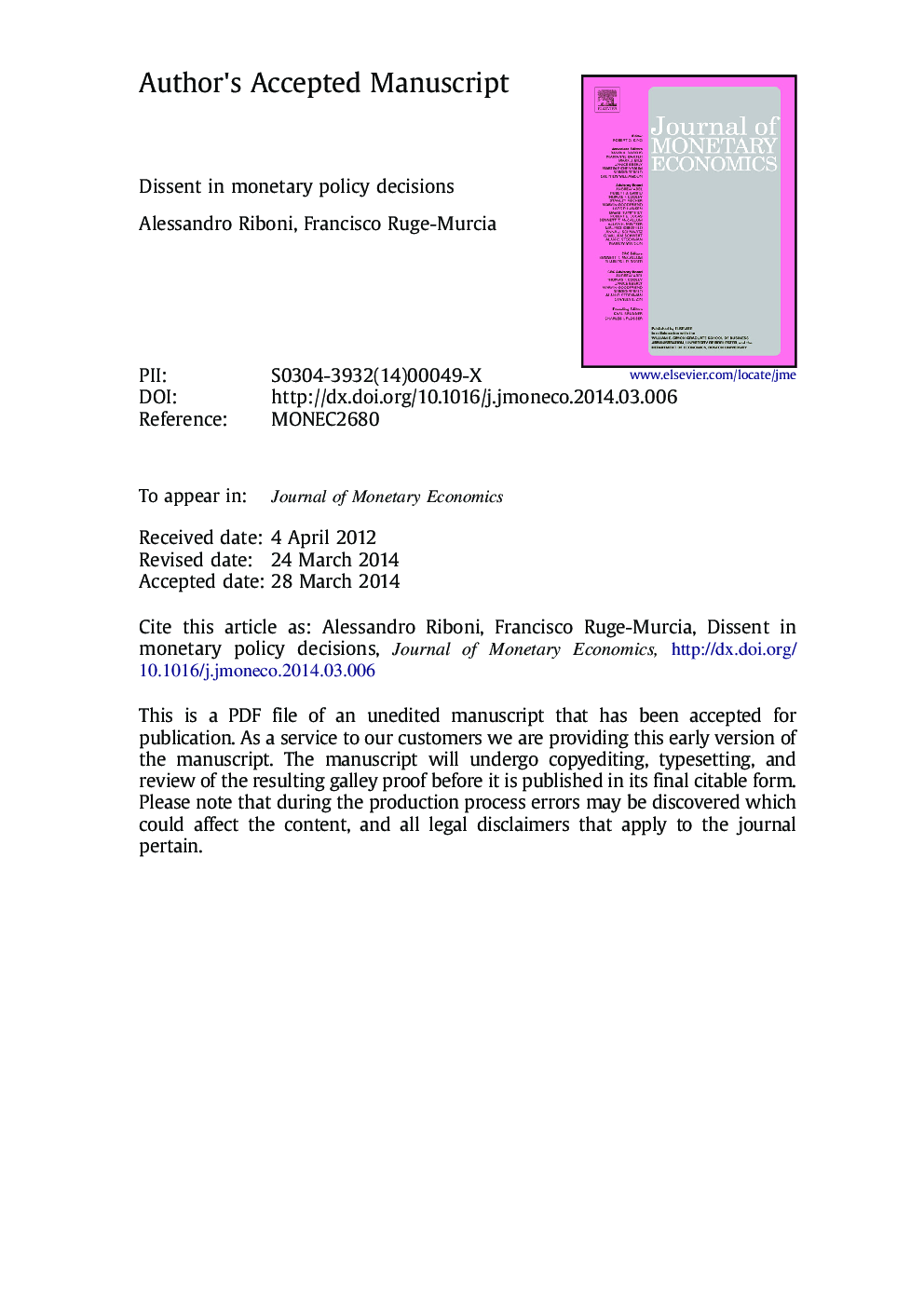| Article ID | Journal | Published Year | Pages | File Type |
|---|---|---|---|---|
| 967120 | Journal of Monetary Economics | 2014 | 24 Pages |
Abstract
Voting records indicate that dissents in monetary policy committees are frequent and predictability regressions show that they help forecast future policy decisions. This paper develops a model of consensual collective decision-making and dissent, and estimates it using individual voting data from the Bank of England and the Riksbank. Regressions based on artificial data simulated from the model show that decision-making frictions help account for the predictive power of current dissents.
Keywords
Related Topics
Social Sciences and Humanities
Economics, Econometrics and Finance
Economics and Econometrics
Authors
Alessandro Riboni, Francisco Ruge-Murcia,
